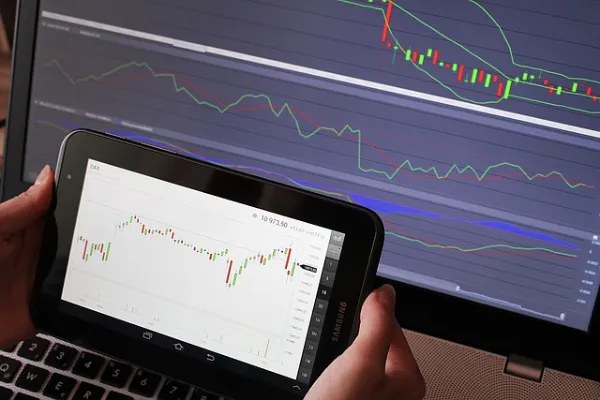
In the trading world, staying ahead of the competition is more challenging than ever. The fast-paced nature of financial markets requires traders to be constantly vigilant and adaptable. As market conditions shift rapidly, more than traditional methods may be necessary to maintain an edge. This is where technology becomes a critical factor in achieving success.
How can traders leverage technology to maintain a competitive edge and maximise their potential for success? In the realm of online trading, utilising advanced tools and platforms is essential for making informed decisions. This article explores the crucial role of technology in modern trading and how it can be harnessed to enhance performance in the financial markets. By embracing technological advancements, traders can position themselves for more tremendous success.
The Role of Technology in Modern Trading
Technology has revolutionised the trading industry, transforming how markets and traders interact. The advent of digital platforms, advanced algorithms, and real-time data analytics has significantly impacted the speed and efficiency of exchanges. These innovations have enabled traders to execute transactions faster, analyse market trends more accurately, and manage portfolios more effectively.
One of the most significant advancements in trading technology is the development of algorithmic trading. It involves using computer programs to execute trades based on predefined criteria, such as price movements or exchange volume. This method allows for faster and more precise trade execution, minimising human error and reducing the impact of emotional decision-making.
Access to Real-Time Data and Analytics
In the trading world, access to real-time data is essential. Real-time data allows traders to monitor market movements as they happen, enabling them to make informed decisions quickly. Advanced platforms now offer real-time market data streaming, including price quotes, order book information, and news updates. This immediate access to information is crucial for capitalising on market opportunities and avoiding potential losses.
Moreover, data analytics has become a powerful tool for traders. By analysing large volumes of historical and current market data, traders can identify patterns and trends that may not be apparent through traditional analysis methods. Data analytics helps traders develop more effective strategies, optimise their portfolios, and predict future market movements more accurately.
The Importance of Automated Trading Systems

They have become increasingly popular among traders seeking to enhance efficiency and consistency. These systems allow traders to automate their strategies, enabling them to execute trades even when they are not actively monitoring the markets. They Operate based on algorithms that follow predetermined rules, such as specific entry and exit points, stop-loss orders, and profit targets.
One key benefit is that it removes the emotional aspect of trading, which can often lead to impulsive decisions and losses. By sticking to a set strategy, automated systems ensure that trades are executed consistently according to the trader’s plan. Additionally, they can monitor multiple markets simultaneously, increasing the trader’s ability to diversify and capture opportunities across various assets.
Choosing the Right Trading Platform
Selecting the right platform is critical for traders who want to stay ahead in the competitive world. A platform serves as the trader’s gateway to the markets, and its features and capabilities can significantly influence outcomes. When choosing a trading platform, several factors should be considered:
- User Interface and Usability: A trading platform should have an intuitive and user-friendly interface that allows traders to navigate quickly and execute trades efficiently. A platform with a steep learning curve can slow down a trader’s performance and lead to missed opportunities.
- Access to Advanced Tools: To harness technology effectively, traders need advanced tools to support their strategies. This includes real-time data feeds, technical analysis tools, customisable charts, and automated features. A robust platform should provide these tools and allow traders to tailor them to their needs.
- Security and Reliability: Security is a top priority in online trading. The chosen platform must have robust security measures, such as encryption and two-factor authentication, to protect the trader’s funds and personal information. Additionally, the platform should be reliable, with minimal downtime, to ensure that trades can be executed without interruption.
- Support and Education: A good platform should offer comprehensive customer support and educational resources. Whether through tutorials, webinars, or a dedicated support team, these resources help traders understand the platform’s features and make the most of the technology available.
Staying Informed Through Technology
Staying informed is essential for making timely decisions in the trading environment. Technology provides traders various ways to keep up with market developments, including news aggregators, financial analysis apps, and social media platforms dedicated to exchanges.
Furthermore, artificial intelligence (AI) and machine learning are emerging as influential technologies in the trading world. These technologies can analyse vast amounts of data, identify patterns, and generate insights to inform strategies.
In the competitive trading world, harnessing technology is essential for staying ahead and maximising returns. Choosing the right trading platform is critical in leveraging these technological advancements. By staying informed and continuously adapting to new technologies, traders can enhance their performance and maintain a competitive edge in the dynamic financial markets.






Leave a Reply